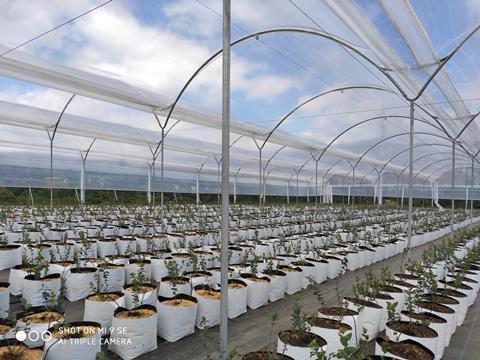Luis Ponce, the association’s new president, believes there is huge potential to boost production and exports
The Ecuadorean Federation of Blueberry Producers and Exporters (Fepexa) has elected Luis Ponce, general manager of Nobis Fruit Company, as its new president.

Ponce said that he will work on three axes to achieve the growth of the country’s blueberry industry: encouraging the signing of new free trade agreements to export more blueberries, increasing the number of producers and hectares producing the highest quality product and fighting against fruit smuggling.
His experience at Nobis has led him to encourage the national production of non-traditional products and he sees blueberries as a fruit with huge potential for Ecuador. “I don’t think we should grow blueberries just for the sake of it and to generate an income, but to really make Ecuador an important place for the production of this fruit,” he said.
Fepexa said it will encourage efforts to ensure that new acreage is of international standard, so that Ecuador is seen as a supplier of premium quality blueberries.
Ponce believes that with proper management, Ecuador can producer sweeter fruit with a larger berry size thanks to a range of external factors such as its climate. The fact that blueberries can be grown year-round also gives the country a competitive advantage, despite the fact that it currently has just 300ha of production.
Another issue that Fepexa says it will deal with urgently is the illegal importation of blueberries with the aim of educating domestic consumers about the importance of the fruit they are consuming being produced nationally and in optimal conditions.
“It is not simply a matter of protecting blueberry producers at a local level, but also the consumer who buys fruit without knowing how it has been grown, harvested or transported,” he said.
Fepexa said it will work hand in hand with the government and supermarkets to prevent illegally imported blueberries from being sold in the country.
Similarly, Ponce said he will try to encourage the signing of free trade agreements to allow Ecuadorean blueberries to reach more international markets.
Currently, they are exported to the US, Europe, and Asian markets like Singapore, Malaysia and Hong Kong. However, he sees opportunities in larger markets, and efforts are already underway to agree a phytosanitary protocol with China, taking advantage of the recent signing of the FTA with that country.
“Our intention is also for blueberries to be included in a potential FTA that is signed with South Korea. We believe that these two markets are going to be important considering the quality of the fruit that Ecuador has,” Ponce said.



